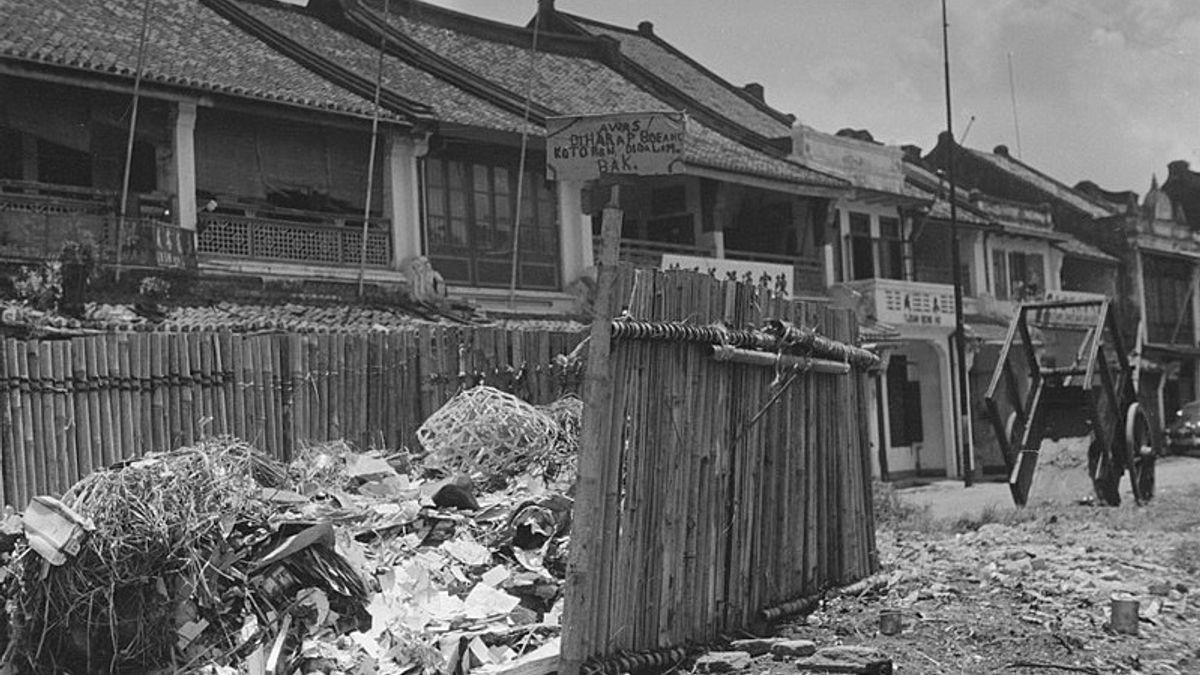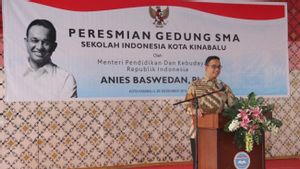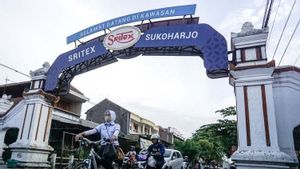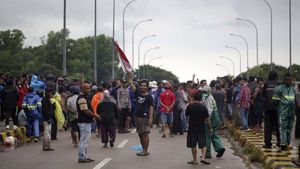JAKARTA - The Dutch trading company, the VOC never cared about building the city of Batavia (now: Jakarta). The Company only cares about the profits of the spice trade monopoly. All kinds of affairs that do not involve profits are ignored.
Affairs to maintain cleanliness, for example. Disasters also arise. Garbage mills around and becomes a disease. The death rate also increased. The new component of beard fire. BREAKs in overcoming the waste problem are done, even if it ends in failure.
Everything is only limited to business. That is the message that Kompeni often shows in his colonial power in the archipelago. The conquest after conquest was carried out purely to monopolize the spice trade.
This reason makes the Company not have the spirit to build its center of power in Batavia. The power of attorney only sees Batavia as a strategic location as the center of the VOC government alone. No more.
The power only made Batavia and Ommelanden (area outside the Batavia walls) only massively explored. They perpetuate the opening of new land by destroying the forest ecosystem. Trees in the tebang without calculation. Instead, they built factories and cleared sugarcane plantations managed by Chinese people to make profits.
The Company did not prohibit land clearing activities. They fully support this. Moreover, this activity has a lot of benefits. Massive exploitation is not a problem. They even closed their eyes when the land planted was not only owned by the Company.
Kerakusan itu sampai membuat bantaran sungai juga ikut dimanfaatkan untuk budi daya cane. Aktivitas itu menyebulkan masalah. Sampah-sampah dari penanaman ilegal menumpuk. Kondisi yang ada semakin dibesarkan oleh Kompeni yang tak memiliki sistem pengelolaan sampah. Akibatnya, empunya pabrik atau lahan secara berbaskan sampah-basah itu ke sungai.
The main source of clean water in Batavia is the Ciliwung River. Like most rivers in Southeast Asia, the Ciliwung River is relatively short, with a total length of less than 120 kilometers. Throughout the VOC period, almost all residents of the city took drinking water from the Ciliwung River. Any object that was thrown upstream of the Ciliwung River.
This activity will definitely pollute the city's waterways in the early days of Batavia, because industrial and agricultural activities are centered along the river. Almost all the waste produced from these activities ends in this river. You can imagine how all of this has a negative impact on the quality of clean water distributed to the city," explained Bondan Kanumoyoso in the book Ommelanden: Community Development and Economics Outside the Batavia City Wall (2023).
The activities of excessive exploitation in the style of the Company bring new problems. The garbage that accumulates and pollutes the river has brought an outbreak of disease. Malaria andxides are the most threatening.
Every day the death of the Dutch due to malaria andrices is increasingly being heard. This condition overwhelmed many hospitals and funeral workers. All happened because of the reluctance of the Company to issue coffers of income to take care of waste.
All Batavians then had to bear nestapa. From high to lowly officials. Moreover, there are still many Dutch people who perpetuate the ritual of defecating in the river. An activity that pollutes the river even more.
The Company was finally forced to intervene. This is because their business in Batavia could be damaged because of their reluctance to clean up trash. River dredging options are often perpetuated. In fact, the Dutch even issued special rules regarding waste disposal.
Anyone who still makes garbage in the river is subject to the punishment of paying a fine. However, its implementation is far from effective. The Company is considered indecisive. People are still littering.
Kompeni finally admitted that he was overwhelmed with taking care of garbage if it should not be said to be incompetent. As a result, plagues ofrices and malaria are getting worse. The last option was carried out. However, not by taking care of garbage. The Company actually had the desire to move the center of government of Oud Batavia (Batavia at a time: Kota Tua area) to another location. This strategy is so that the Company does not bother with waste management and only realized when the Dutch colonial government takes power.
There are many efforts by the city government to improve this unhealthy condition. Starting from the matter of garbage, excavation of sewers, sewers, canals, riool or culverts that are full of mud, to efforts to free up areas along the coast from all waste and destructive plants. The matter of disposing of garbage has actually been regulated since 1630.
The rules prohibit people from throwing human waste, household waste and various types into an anal river that flows in the city. The rules were re-invited on February 28, 1747, December 4, 1777, April 1, 1788, and those caught being fined six riksdalders, "said historian Mona Lohanda in the book History of the Magnifiers Regulating Batavia (2007).
The English, Chinese, Japanese, Arabic, and French versions are automatically generated by the AI. So there may still be inaccuracies in translating, please always see Indonesian as our main language. (system supported by DigitalSiber.id)










